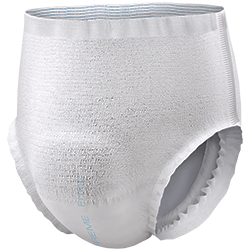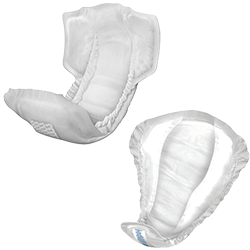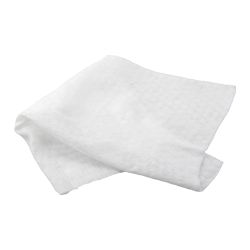Are You Concerned About Your Kidneys and Incontinence?
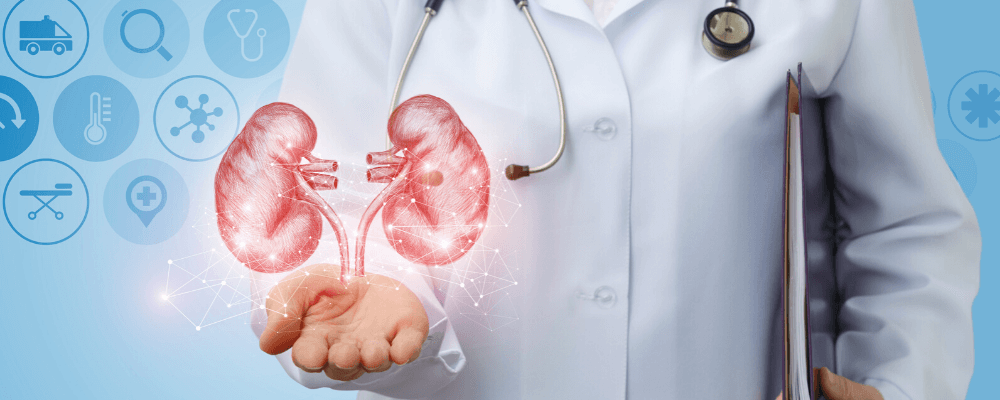
Even though March is officially National Kidney Month, we can all benefit from learning more about the importance of kidney health any time of year.
Overview
The kidneys are two reddish, bean-shaped organs that are about the size of a fist. They are located just below the rib cage, one on each side of the spine. Healthy kidneys filter about a half cup of blood every minute, removing waste and extra water to make urine. They also help maintain a healthy balance of water, salts and minerals in the blood. Without this balance, nerves, muscles and other tissues may not work normally, according to the National Institute of Diabetes and Digestive Kidney Diseases (NIDDK).
Kidney Issues
Kidney issues develop when the kidneys are damaged from physical injury or health conditions such as diabetes and high blood pressure. Those with a family history of kidney disease are also at an increased risk.
According to the National Kidney Foundation, 26 million American adults have some form of kidney disease, and most don’t even know they have it. It is often called a ‘silent disease’ because individuals may lose up to 90 percent of their kidney function before they develop symptoms.
Some forms of kidney disease are progressive and worsen over time. When kidneys are unable to remove waste from blood, they fail and serious problems can occur. To address this, sometimes blood is filtered artificially through dialysis or, in severe cases, a kidney transplant is needed.
Everyone loses a little of their kidney function as we age, according to the National Institutes of Health (NIH). People can survive with just one kidney if they need to.
“There are a few simple things people can do to keep their kidneys healthy and strong,” says Joseph Vassalotti, MD, medical officer for the National Kidney Foundation.
These include the National Kidney Foundation’s ‘Take 5 For Your Kidneys’ steps for kidney health.
Take 5 For Your Kidneys
-
Get Tested
Ask your doctor for an “ACR urine test” or a “GFR blood test” annually if you have diabetes, high blood pressure, are over age 60, or have a family history of kidney issues.
Albumin-to-creatinine ratio (ACR) can help detect kidney damage. The test detects elevated albumin in the urine. Albumin is a type of protein. Having protein in urine may indicate the kidneys are not filtering blood well enough, possibly the result of kidney disease.
The Glomerular Filtration Rate (GRF) estimates the kidney’s filtering ability. A GFR below 60 is a sign of kidney disease. If the GFR falls below 15, a person may feel tired, weak, experience vomiting and an itching sensation. Immediate medical attention is advised.
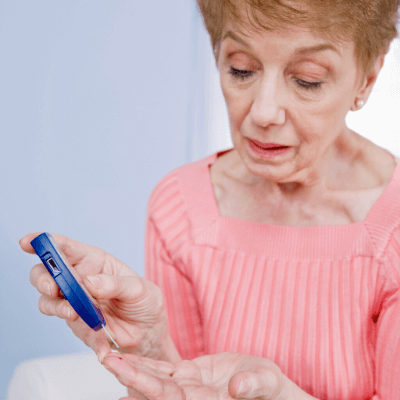
2. Reduce Over-the-Counter Medications/NSAIDs
You may be taking over-the-counter pain medications for a variety of reasons such as headaches, fever or pain. Most OTC medicines are considered NSAIDs (nonsteroidal anti-inflammatory drugs), which include commonly used pain relievers and cold medicines. Ibuprofen and naproxen are two of the leading NSAIDs.
NSAIDs, along with pain killers, may alleviate aches and pains, but they can damage the kidneys and lead to acute kidney injury, especially in those with kidney disease, diabetes and high blood pressure. Reduce the regular use of NSAIDs and never go over the recommended dosage.
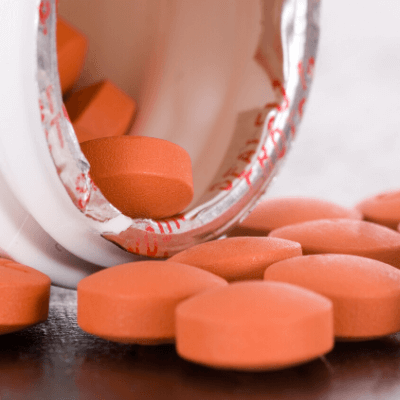
-
Eliminate Processed Foods
Processed foods can be significant sources of sodium, nitrates and phosphates, and have been linked to cancer, heart disease and kidney disease. A heart-healthy diet can help normalize blood pressure and also slow kidney disease and other issues. The recommended sodium intake is 5-6 grams of salt per day, including the salt already in foods. NIDDK advises to have less than 10 percent of daily calories from added sugars.
“Most American eat more sodium and protein than the body needs,” says Registered Dietitian Theresa Kuracina, NIH adviser. “We generally recommend eating less sodium and more fruits, vegetables and whole grains. To reduce fats, choose lean meats and low-fat or fat-free dairy products.”
For those struggling with adopting a heart-healthy, kidney-healthy lifestyle, a dietitian may be helpful. Find a dietitian who knows about kidney disease who can help create a meal plan that includes foods that are healthy and taste appetizing.

4. Exercise Regularly
Kidneys like exercise. Regular exercise will keep bones, muscles, blood vessels, heart and kidneys healthy. Being active for at least 30 minutes a day can also help control blood pressure and lower blood sugar, which is vital to kidney health. If you are not active currently, talk to a physician about the types and amounts of physical activities that would be appropriate for you.
The key to an exercise program is picking an enjoyable activity, starting slowly, building up a little at a time, staying motivated and being positive. If aerobic activity and higher-impact exercise does not appeal, consider some stress-reducing and low-impact activities such as meditation, yoga and tai chi.

-
Keep Blood Pressure and Diabetes Under Control
High blood pressure and diabetes are the leading causes of kidney disease and kidney failure. About half of people who have diabetes and about half of people who have high blood pressure do not know they have diabetes or high blood pressure, respectively. Blood sugar level and blood pressure should be checked as part of an annual exam or checkup. Testing can include blood and urine tests, as well as blood pressure screenings.
Normal adult blood pressure is 120/80. Consult a physician if a person’s blood pressure is consistently higher or lower than this range. Managing and monitoring high blood pressure and blood sugar levels can help slow the progression of kidney issues and disease.
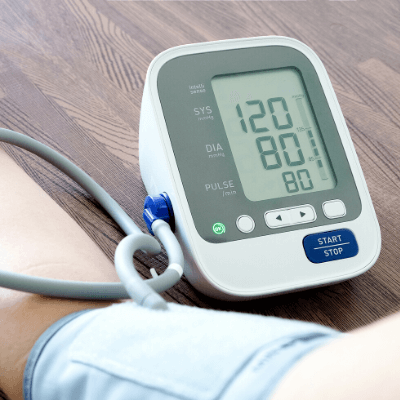
“Take the Pressure Off Your Kidneys and Your Health” National Kidney Month
In partnership with the National Heart, Lung, and Blood Institute (NHLBI), this year’s National Kidney Month focus was on the connection between kidney disease and high blood pressure. High blood pressure and diabetes are the two most common causes of kidney failure, according to the National Kidney Foundation. If a person has high blood pressure, they are at risk for chronic kidney disease, which can result in stroke, heart attack and kidney failure.

Don’t Delay If You Have These Risk Factors
Get your kidneys checked if you have one or more of the following ‘high risk’ factors:
-
Diabetes
-
Hypertension
-
Obesity
-
Family history of kidney disease
Get screened for free through the National Kidney Foundation’s KEEP Healthy program by visiting the National Kidney Foundation's page.
Kidney Disease and Incontinence
There are different types of kidney disease. Most strike both kidneys at the same time, harming the tiny filters – called nephrons – and reducing their filtering ability. When damage happens quickly, it is known as acute kidney injury. It’s more common, though, for nephrons to worsen slowly and silently for years or even decades, which is chronic kidney disease.
“Most people have few or no symptoms until chronic kidney disease is very advanced,” says Dr. Andrew Narva, a kidney specialist at NIH. “You can lose up to three-fourths of your kidney function and essentially have no symptoms.”
Individuals with kidney issues are at an increased risk for urinary incontinence, an uncontrolled leaking of urine from the bladder. Kidneys make urine so, when the kidneys are failing, changes in urination may occur and individuals often find themselves needing to use the bathroom more urgently and getting up frequently throughout the night, according to ActiveBeat.
Individuals may find they urinate in greater quantities and with increased pressure, and urine may be foamy or contain traces of blood. Another condition that can develop as is a urinary tract infection, which can be very painful. It is important to see a physician if a kidney infection is suspected because lasting damage may occur if left untreated.
Our kidneys are important, which is why people should know all they can about kidney health and pay attention to any issues. Kidney disease and is a progressive disease that can be fatal but, if caught early, can be treated effectively.

